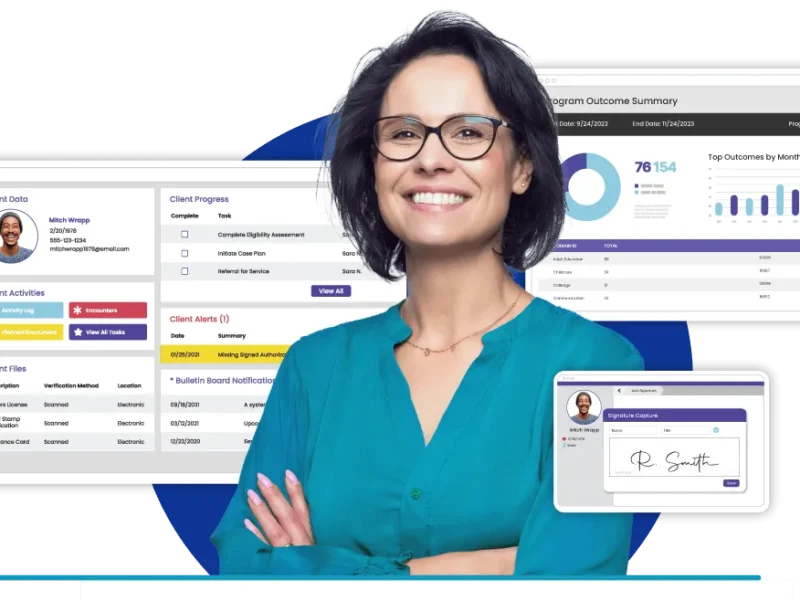In the dynamic and competitive landscape of Software-as-a-Service (SaaS), the traditional rules of marketing are rapidly being rewritten by artificial intelligence (AI). As SaaS companies scale, compete globally, and strive for customer retention in subscription-based models, AI is emerging as a powerful catalyst for smarter, more personalized, and highly efficient marketing strategies. AI-driven tools are enabling SaaS providers to make sense of vast datasets, predict user behavior, automate campaign execution, and deliver hyper-personalized customer experiences across channels. At the core of these innovations are advanced SaaS Marketing Services designed to align AI’s analytical prowess with business outcomes, ensuring SaaS companies attract, convert, and retain customers in an increasingly data-driven marketplace.
Personalized Customer Journeys at Scale
One of the most significant impacts of AI on SaaS marketing is the ability to create tailored customer journeys at scale. Traditionally, personalization required manual segmentation, static customer personas, and broad messaging strategies. With AI, SaaS companies can now utilize machine learning algorithms to analyze user behavior in real time and deliver content that is uniquely relevant to individual users. From customized onboarding sequences to real-time support chatbots, AI ensures that every interaction feels timely and relevant.
This level of personalization leads to higher customer engagement, improved satisfaction, and ultimately greater conversion rates. For SaaS platforms offering complex features or tiered pricing models, guiding users through the right experience can significantly reduce churn. AI-powered recommendation engines, similar to those used by streaming platforms like Netflix or Spotify, are now common in SaaS environments to recommend tutorials, features, upgrades, or relevant resources based on user data.
Predictive Analytics and Smarter Decision Making
AI introduces the capability to anticipate customer behavior before it happens. By leveraging predictive analytics, SaaS marketers can determine which leads are most likely to convert, which customers are at risk of churning, and which features are most popular among different user segments. This allows marketing and product teams to proactively adjust campaigns, messaging, or even product features.
SaaS companies benefit greatly from this foresight. AI models trained on historical data help refine lead scoring models and improve sales and marketing alignment. Marketers can deploy resources more effectively, target high-value leads, and personalize offers with better precision. The result is not only improved return on ad spend (ROAS) but also higher customer lifetime value (CLTV).
Moreover, AI supports dynamic pricing strategies—an increasingly popular tactic in SaaS—by adjusting pricing models based on usage patterns, competitor benchmarks, and customer willingness to pay. This creates a flexible and optimized monetization strategy that drives both acquisition and retention.
Chatbots and AI-Powered Customer Support
Customer support is a cornerstone of SaaS success, especially for enterprise or mission-critical software. AI-powered chatbots and virtual assistants now handle a significant portion of customer queries in real time, reducing response times, and freeing human support teams to focus on complex issues.
These bots are no longer limited to answering FAQs; they can engage in contextual conversations, recognize intent, and escalate issues appropriately. AI ensures round-the-clock support, which is especially valuable for SaaS companies with global clientele. Integrated across websites, apps, and messaging platforms, chatbots provide a unified customer service experience that is both scalable and cost-effective.
AI in Content Generation and Marketing Automation
Content marketing is an essential pillar of SaaS success. AI tools such as GPT-based models and content automation platforms have made it easier to generate high-quality blog posts, whitepapers, case studies, and ad copy. These tools analyze existing content performance, keyword trends, and user intent to craft content that resonates with target audiences.
AI also powers marketing automation tools that orchestrate email marketing campaigns, lead nurturing sequences, and social media scheduling. These platforms go beyond simple automation—they learn from past campaign performance to suggest optimal send times, subject lines, and content variations. AI-driven A/B testing tools can automatically adjust variables for better results, ensuring continuous optimization.
SEO and AI: A Critical Synergy
Search engine optimization (SEO) remains crucial in SaaS marketing. AI enhances SEO strategies by analyzing competitor performance, uncovering keyword opportunities, and detecting content gaps. Tools like Clearscope, SurferSEO, and MarketMuse use AI to recommend on-page SEO improvements, optimize content for semantic relevance, and ensure alignment with evolving search engine algorithms.
For SaaS companies targeting B2B markets, partnering with an Enterprise SEO company becomes vital. These firms utilize AI to manage large-scale SEO strategies involving complex site architectures, multiple products, and international targeting. AI helps in link-building analysis, anchor text distribution, and technical SEO audits, ensuring that enterprise SaaS platforms remain discoverable and competitive in search results.
Additionally, voice search optimization and AI-powered SERP monitoring are helping SaaS marketers adapt to changing search behaviors and algorithm updates. Whether it’s ensuring mobile-first indexing or identifying snippets opportunities, AI provides actionable insights that traditional SEO methods cannot match.
Enhancing Customer Retention with AI
In the SaaS world, retention is just as important as acquisition. AI aids customer retention strategies by monitoring product usage, support interactions, and sentiment data to flag disengaged users. Machine learning models can predict the likelihood of churn and recommend actions such as personalized email outreach, feature nudges, or discount offers to retain users.
AI also enhances Net Promoter Score (NPS) and customer satisfaction tracking. By analyzing feedback from surveys, support tickets, and even social media, SaaS companies can proactively resolve issues and improve user experience. This holistic view of the customer lifecycle, powered by AI, ensures long-term customer loyalty.
Data Privacy and Ethical Considerations
While AI offers immense advantages, it also raises concerns around data privacy, bias, and transparency. SaaS companies must ensure they use AI tools responsibly, comply with data protection regulations (like GDPR and CCPA), and maintain customer trust. Clear consent mechanisms, transparent AI models, and regular audits are necessary to ensure ethical use.
Marketers need to be aware of potential algorithmic biases, especially when using AI for lead scoring or personalization. Ethical AI practices, combined with human oversight, help avoid discrimination and ensure that AI tools contribute positively to brand reputation.
AI and Account-Based Marketing (ABM)
Account-Based Marketing (ABM) is especially effective in SaaS, where high-value clients require personalized attention. AI enhances ABM strategies by identifying target accounts, mapping decision-makers, and automating personalized outreach. AI tools can suggest relevant messaging based on industry trends, competitor analysis, and firmographic data.
This targeted approach leads to more meaningful engagements, shorter sales cycles, and higher deal sizes. AI-powered ABM is ideal for SaaS companies pursuing enterprise deals, where a deep understanding of client pain points and decision journeys is key.
The Rise of AI-Powered SaaS Marketing Platforms
A new breed of AI-first SaaS marketing platforms is emerging—tools like HubSpot AI, Salesforce Einstein, and Adobe Sensei are integrating AI into their core functionalities. These platforms help marketers unify data from multiple touchpoints, automate workflows, and deliver unified customer experiences across channels.
By investing in such platforms, SaaS marketers are gaining a 360-degree view of their customers and leveraging AI to deliver timely, relevant, and measurable marketing efforts. The use of AI becomes a competitive differentiator that improves ROI and fuels sustainable growth.
Preparing for the Future
As AI continues to evolve, SaaS marketers must adapt their strategies and skill sets. This means becoming data-savvy, understanding AI tools’ capabilities and limitations, and integrating them into every stage of the marketing funnel. While AI won’t replace human creativity or strategic thinking, it will empower marketers to act faster, smarter, and more efficiently.
Future innovations may include AI-driven branding, immersive customer experiences through AR/VR, and even autonomous marketing systems that optimize themselves in real time. SaaS companies that embrace these changes early will likely lead the pack in the next phase of digital transformation.
Conclusion: AI, SaaS, and the Local Advantage
In conclusion, AI is fundamentally reshaping how SaaS companies approach marketing. From personalized experiences and predictive analytics to content automation and intelligent SEO, the integration of AI empowers marketers to drive better outcomes with less effort. SaaS firms that adapt to this transformation stand to gain a significant competitive edge—especially when they partner with the right marketing allies.
Whether scaling globally or engaging customers locally, aligning AI with marketing goals requires deep expertise. Partnering with a Local SEO Company in Dubai, for instance, can help SaaS businesses tap into regional markets, optimize multilingual campaigns, and leverage AI tools tailored for localized strategies. As AI becomes more accessible and powerful, the most successful SaaS brands will be those that embrace innovation, prioritize customer experience, and integrate AI into the very fabric of their marketing operations.


